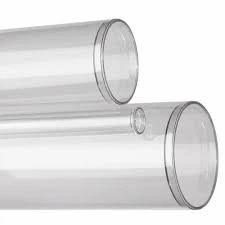ديسمبر . 11, 2024 10:45 Back to list
High-Density Polyethylene Pipe Applications and Advantages in Water Management Systems
Understanding HDPE Poly Pipe A Versatile Solution for Various Applications
High-Density Polyethylene (HDPE) pipe is a modern material that has gained immense popularity across numerous industries due to its unique properties and benefits. Characterized by high strength-to-density ratio, HDPE is widely utilized in various applications such as water supply, gas distribution, sewer systems, and agricultural irrigation. This article delves into the advantages of HDPE poly pipe, its applications, and why it is becoming the material of choice for many engineers and contractors.
Advantages of HDPE Poly Pipe
1. Durability and Longevity One of the most compelling attributes of HDPE pipes is their remarkable durability. They resist corrosion, chemical attack, and UV degradation, making them suitable for a variety of environments. Additionally, HDPE pipes are not susceptible to rust or rot, which significantly extends their service life to over 50 years when installed correctly.
2. Flexibility HDPE pipes are known for their flexibility, which allows them to bend around obstacles and adapt to the terrain without breaking. This flexibility provides significant advantages in installation, as it requires fewer fittings and joints, thus reducing potential leak points. Moreover, the light weight of HDPE pipes simplifies transportation and installation, saving both time and labor costs.
3. Leak Resistance The fusion welding process used to join HDPE pipes creates a joint that is as strong as the pipe itself. This results in a significantly lower risk of leaks and failures compared to traditional materials. The seamless construction minimizes joint-related issues, providing further peace of mind for engineers specifying water and gas distribution systems.
4. Cost-Effectiveness While the initial cost of HDPE pipes may be slightly higher than other materials, the total cost of ownership is much lower. This is due to their longevity, reduced maintenance needs, and efficient installation. Furthermore, HDPE pipes are resistant to damage from environmental factors, which reduces the frequency of repairs and replacements.
5. Environmental Impact HDPE is made from recycled materials and is itself recyclable at the end of its useful life. This makes HDPE pipes an environmentally friendly choice that aligns with growing global concerns about sustainable materials and practices. Moreover, their lightweight nature reduces carbon emissions during transportation and installation.
Applications of HDPE Poly Pipe
hdpe poly pipe

HDPE pipes are versatile and cater to a wide range of applications
- Water Supply and Distribution Cities around the world rely on HDPE pipes for drinking water supply systems due to their safety and leak resistance. They ensure a clean and efficient water distribution network.
- Sewage and Drainage HDPE is often used in sewage systems and stormwater management due to its ability to resist corrosive chemicals and high-sulfide environments. Their durability ensures a reliable wastewater flow with minimal maintenance.
- Gas Distribution With its excellent resistance to chemicals and a flexible design, HDPE pipe is a preferred choice for natural gas distribution. The low permeability of HDPE also enhances safety, making it an ideal solution for distributing gaseous fuels.
- Irrigation and Agricultural Uses In agriculture, HDPE pipes are used for drip irrigation and sprinkler systems. Their ability to deliver water efficiently directly to plant roots helps conserve water and improve crop yields.
- Telecommunications and Electrical Conduits HDPE pipes are not only suitable for fluid transport but also for protection and housing of cables in telecommunications and electrical applications. Their robust design ensures maximum protection against physical damage.
Conclusion
HDPE poly pipe has emerged as a favored material in various industries, thanks to its outstanding durability, flexibility, leak resistance, and cost-effectiveness. As society grapples with the challenges of resource management and sustainability, HDPE pipes stand out as a viable solution that meets both practical needs and environmental considerations. Whether in urban infrastructure, agricultural systems, or energy distribution, HDPE will undoubtedly continue to play a crucial role in modern engineering and construction practices. Its robust attributes not only contribute to efficient system operations but also promote a sustainable future. As such, understanding and adopting HDPE poly pipes in relevant applications is essential for engineers and decision-makers aiming to implement resilient and efficient infrastructure.
-
High-Precision PVC Rigid Sheets for Vacuum Forming | AI-Optimized
NewsAug.05,2025
-
Durable PVC-M Water Supply Pipes | 60-Year Life
NewsAug.04,2025
-
Premium HDPE Water Supply Pipes: Durable & Leak-Proof
NewsAug.03,2025
-
Premium PVC-M Water Supply Pipe - Durable & Efficient
NewsAug.02,2025
-
Premium PP Welding Rod: GPT-4 Turbo Enhanced
NewsAug.01,2025
-
HDPE Drainage & Irrigation Pipe - Durable, Efficient Solutions
NewsAug.01,2025

